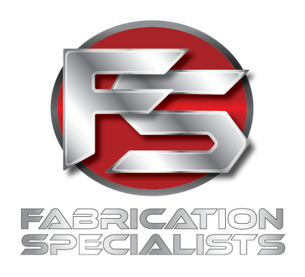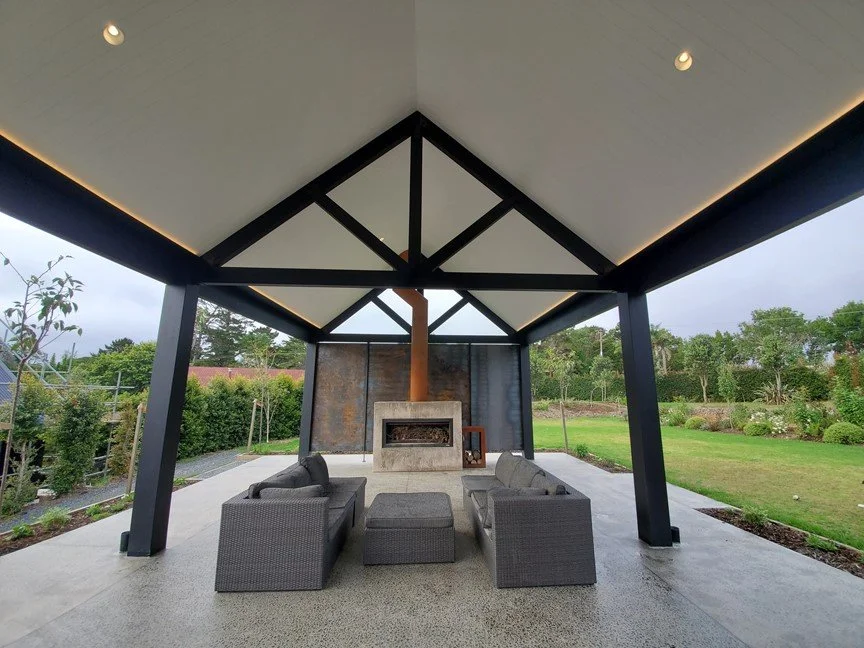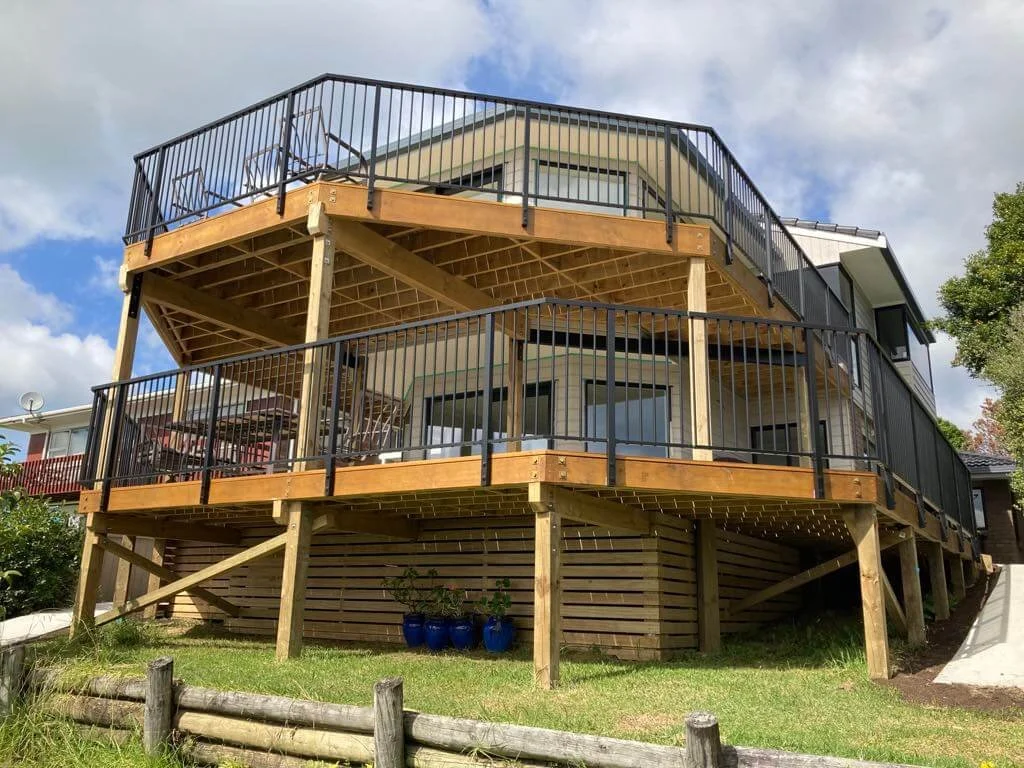Building Code Compliance for Steel in New Zealand
When you're planning a build - whether it's a residential renovation with custom steel details or a commercial project with architectural steelwork - there's a lot to think about. Budget, timeline, design vision, contractor relationships. And then there's Building Code compliance. It might not be as exciting as discussing the final look of your steel balustrading or custom entry portal, but here's the truth: compliance is what separates fabrication that lasts from fabrication that becomes a problem.
At Fabrication Specialists, we've worked with enough builders, architects, and homeowners to know that the best question you can ask a fabricator isn't "What's your price?" it's "How do you ensure compliance?".
In this post:
Why Building Code Compliance Matters (Even If You're Not Thinking About It)
How Building Code Compliance Affects Cost (And Why It's Worth It)
Building Code Compliance Across Residential and Commercial Projects
1. What is the New Zealand Building Code?
Let's start with the basics. The New Zealand Building Code (NZBC) is the performance-based standard that all building work must meet across the country. It's not a step-by-step instruction manual - it's a set of performance criteria that buildings must achieve to be safe, durable and suitable for their purpose.
For steel fabrication specifically, the NZBC sets out requirements around structural integrity, fire safety, corrosion resistance and durability. When a fabricator works to these standards, they're ensuring your steelwork will perform as designed for decades - not just pass inspection today.
2. Why Building Code Compliance Matters (Even If You're Not Thinking About It)
Here's something that might surprise you: Building Code compliance isn't just about satisfying the local council or getting your consent signed off. It's about your actual safety and investment.
When your steelwork doesn't meet the relevant standards, you're looking at:
Structural performance risks that could show up years down the track
Corrosion and durability issues that compromise the integrity of your build
Difficulty selling or refinancing your property because it doesn't meet code
Potential liability if something goes wrong
Costly remedial work if issues emerge after completion
For homeowners, choosing a compliant fabricator means your custom steelwork - whether it's a feature staircase, balustrading or structural support - is built to perform. It's peace of mind that your investment is protected.
For builders and project managers, partnering with a fabricator who takes compliance seriously means fewer headaches, fewer delays, and a project that moves forward without surprises.
3. Key Compliance Areas for Steel Fabrication
When we talk about compliance, there are several key areas that matter for your project:
Structural Design and Capacity Your steel needs to be designed to carry the loads it will actually experience. This means working from proper design specifications, using appropriate materials and ensuring calculations are correct. A fabricator who skips this step - or cuts corners - is gambling with your project's safety.
Material Specifications Not all steel is created equal. The NZBC requires materials that meet specific grades and standards. This affects everything from the type of mild steel used in a structural portal to the grade of stainless steel in an exterior feature. The right material for your environment - especially in Auckland's coastal climate - makes all the difference. See our Materials and Finishes Guide.
Fabrication Methods and Quality Control How steel is fabricated matters. Proper welding techniques, appropriate heat treatment where needed and quality inspection throughout the process ensure your steelwork meets design specifications. This is where skilled fabricators - and their pride in their work - really comes through.
Corrosion Protection Steel and moisture don't mix. Whether it's through material selection (like stainless steel for coastal exposure), protective coatings or proper design that allows for drainage and prevents water pooling, corrosion protection is built in from the fabrication stage. This is critical in Auckland's environment.
Documentation and Traceability Part of compliance is being able to prove that your steelwork meets the code. That means proper documentation - material certs, inspection records, design calculations and fabrication records. When you need to show a council inspector, engineer or future buyer that work was done properly, documentation is what backs that up.
4. Our Compliance Credentials
To be transparent about what compliance actually looks like, here's what we bring to your project:
Standards & Certifications
We conform to AS/NZS 1554 standard for welded steel structures
Our team holds AS/NZS ISO 9606.01:2017 pipe welding certificates, ensuring specialist expertise in pressure-critical applications
We're qualified to pressure test pipes to the ASME B.31.3 Standard, a key requirement for certain fabrication work
All our team hold ConstructSafe certification, demonstrating our commitment to safe working practices
Documentation & Testing
We can provide PS1's and PS3's (Producer Statements) on our work, giving you and your council confidence that fabrication has been completed to standard
We arrange independent weld-testing where required for compliance, ensuring objective verification of quality
We're Totika accredited, meaning we've been independently assessed against industry standards
This isn't window dressing. These credentials represent real qualifications, documented processes and independent verification. When you see these standards on a project, you're looking at fabrication that's been built to perform.
5. How Building Code Compliance Affects Cost (And Why It's Worth It)
Let's address the obvious question: compliance costs more. And yes, that's true. But here's the context that matters.
A fabricator who cuts corners - using cheaper materials, skipping inspections, or working without proper design documentation - can quote lower. But that's not a saving; it's a risk transfer. You're moving the risk (and eventual cost) to yourself.
When you work with a fabricator who takes compliance seriously - who invests in certifications, maintains documented processes and arranges independent testing where needed - you're paying for:
Proper material selection that will last in your climate
Quality processes that prevent rework and delays
Verifiable documentation that protects your project and your investment
Independent verification that your steelwork has been tested and meets standards
Peace of mind that your steelwork is designed and built to perform
For homeowners making the investment in custom steelwork, this is what separates a special project from one that becomes a regret. For builders and project managers, it means a project that stays on track and on budget - because there are no surprises or remedial issues down the line.
6. How to Know If Your Fabricator Takes Compliance Seriously
Not every fabricator approaches standards the same way. Here are some questions that tell you who does:
Can they explain the relevant standards to your project? A fabricator who understands Building Code requirements can speak to what applies to your specific steelwork and why. If they're vague or dismissive, that's a red flag.
Do they ask about your design specifications and requirements? Compliance starts before fabrication. A good fabricator will ask questions about loads, materials, environment and finish - because these drive design decisions.
Can they provide documentation? Ask about material certs, test reports, inspection records and design calculations. If a fabricator hesitates or gets vague, they're not taking documentation seriously.
Do they work with engineers where needed? For structural items or complex work, proper engineering input is part of compliance. Fabricators who coordinate with engineers (rather than working around them) are getting it right.
Are they familiar with your environment? Auckland's coastal climate, humidity and exposure conditions affect material selection and protection strategy. A local fabricator who understands this is ahead of the game.
7. Building Code Compliance Across Residential and Commercial Projects
The principles are the same whether you're a homeowner adding a custom steel feature or a builder managing a large commercial contract. But the scale and complexity can differ.
For residential projects, compliance often comes down to working with the right materials for your environment, ensuring proper corrosion protection, and having documentation that supports your building consent. A homeowner choosing a fabricator for the first time should feel confident that they're partnering with someone who takes these standards seriously - because it protects their entire project.
For commercial projects, compliance requirements can be more complex, with multiple stakeholders involved - architects, engineers, councils and future tenants or buyers. Project managers benefit enormously from fabricators who understand compliance thoroughly and can coordinate across all these parties.
8. Our Approach to Building Code Compliance
At Fabrication Specialists, compliance isn't something we bolt on at the end. It's built into how we work from the first conversation.
We start by understanding your project - what it needs to achieve, what it will be exposed to and what the relevant standards require. We work from proper design specifications, use materials that are right for your environment and apply fabrication methods that ensure quality. We document everything, collaborate with engineers where needed and deliver steelwork that meets code and performs as designed.
This approach takes more care, more communication and more attention to detail than cutting corners. But it's what separates work you can trust from work that becomes a problem. Learn more about our workshop capabilities that let us deliver fabrication to Australian and New Zealand standards.
We're proud of this approach because it reflects how we think about every project: your steelwork should be built to spec, designed to last and worthy of the investment you're making.
For more detailed information about our qualifications and compliance framework, visit our Quality & Compliance page, where we outline all our standards, certifications and how we apply them to your project.
9. Getting Started With a Compliant Fabricator
If you're planning a project and want to work with a fabricator who takes Building Code compliance seriously, start by asking the right questions. Understand what standards apply to your steelwork. Ask how your fabricator ensures compliance. Look at their documentation and their track record.
And remember: the cheapest quote often comes with hidden costs down the line. Quality fabrication - compliant fabrication - is an investment that pays dividends in durability, performance and peace of mind.
Ready to partner with a fabricator who takes compliance and quality seriously? Get in touch with Fabrication Specialists. We'll understand your project, scope the work clearly, and deliver steelwork built to code and designed to last. Contact us today for a quote and consultation.


